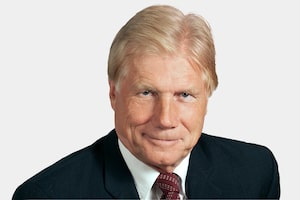Much is unknown about Stephen Harper. He's more remote than recent prime ministers. Among his many qualities, a sunny disposition is not to be found. Much is internalized.
The other day, he surprised us with a touching eulogy for Dave Batters, the former Saskatchewan MP who took his own life. The Prime Minister spoke of how the 39-year-old had struggled with severe anxiety and depression. Depression, said Mr. Harper, who created the Mental Health Commission of Canada in 2007, "can strike the sturdiest of souls. It cares not how much you have achieved or how much you have to live for."
That eulogy got me thinking about a little-reported episode in the Prime Minister's family history. One day in 1950, Mr. Harper's grandfather, Harris Harper, a high-school principal in Moncton, disappeared, never to be found. The circumstances have remained obscure. It received a brief mention in William Johnson's biography of the Prime Minister, but little follow-up.
According to Helen Tippett, who taught at the same school as Harris Harper, depression was behind his disappearance. She is 97 now, but still articulate and engaging when I talked to her this week. Because of her acquaintance with his grandfather, Mr. Harper has quietly been in touch with her both before and after becoming prime minister. He asked her, among other things, to take him to the school, Prince Edward, where his grandpa had taught.
Since a body was never found, no one can be certain what happened to Harris Harper. But the consensus, said Mrs. Tippett, is that it was suicide from depression. A few months before he disappeared, she said, he had suffered a nervous breakdown. He then tried to return to his job at the school, but they gave him some tests to mark "and it was all marked wrong and he couldn't conduct school."
That may have been the clincher. She recalled that "he was last seen by a nurse and they think that he walked down Main Street, turned left and went past Eaton's to the bridge and jumped in the river. The tide took him out." A large search party, which included Mrs. Tippett's husband, came up empty-handed.
Harris Harper, she recalled, was a nice-looking man, polite but firm. A military buff, he insisted that teachers put classes through "physical drills," a daily exercise regime. He had a small speech impediment, and pronounced proof as "poof"; the teachers used to mock him for it and refer to him as "Poof Harper." The memory still rankles Mrs. Tippett.
Stephen Harper, who was born nine years after his grandfather had disappeared, first visited Mrs. Tippett when he was leader of the Canadian Alliance. Mrs. Tippett's son had bought the school where Harris Harper had taught and was planning to turn it into an apartment complex. Mr. Harper wanted to see it before that happened. A few months after becoming prime minister in 2006, he visited her for half an hour when he was in Moncton for a fundraiser. He didn't press her on what happened to his grandfather, she recalled. It was just a general chat about families. A few months ago, he was in touch with her again.
In his biography, Mr. Johnson says Harris Harper's disappearance had an "incalculable" impact on the family. Stephen Harper is quoted as saying that it made his own father, the late Joe Harper, "appreciate that all the good things in life … are still just passing things." Stephen Harper was extremely close to his father, saying he was the foremost influence on his life.
In his book Full Circle, Bob Plamondon writes about times in which Mr. Harper has "gone dark," turning inward and reclusive. Others, including Preston Manning, have written how he was quick to draw away from situations where he was not in control. But it would be dubious dime-store psychology to draw any link between such tendencies and the family tragedy. Who knows what traces such traumas can leave?
In his moving eulogy to Mr. Batters, it was noteworthy to see that Mr. Harper issued a caution regarding people who reveal too much of themselves. "Dave was a very human politician," Mr. Harper said. "He opened himself to others. It strengthened his hand in representing his constituents, but it rendered him vulnerable to depression, as it can to any of us."
 Lawrence Martin
Lawrence Martin